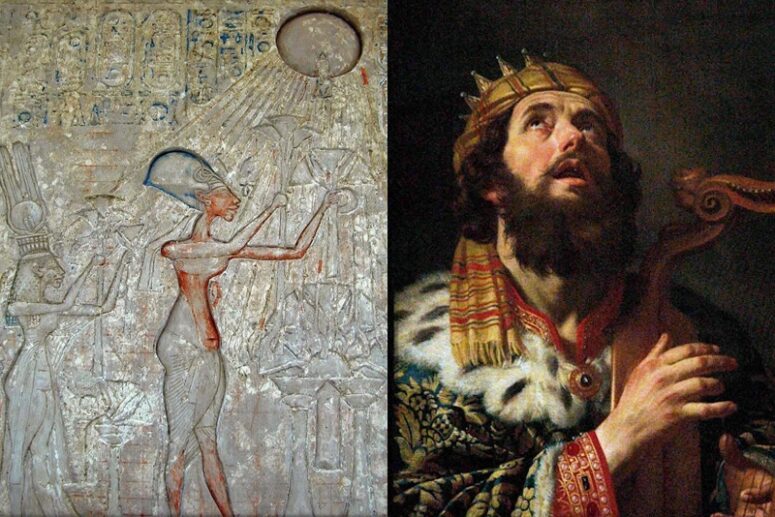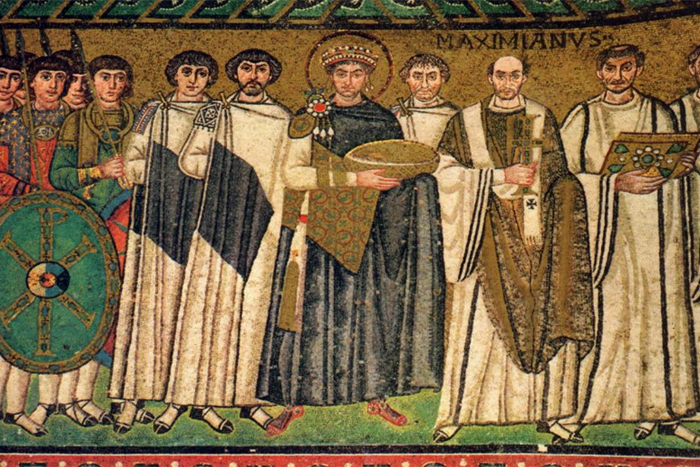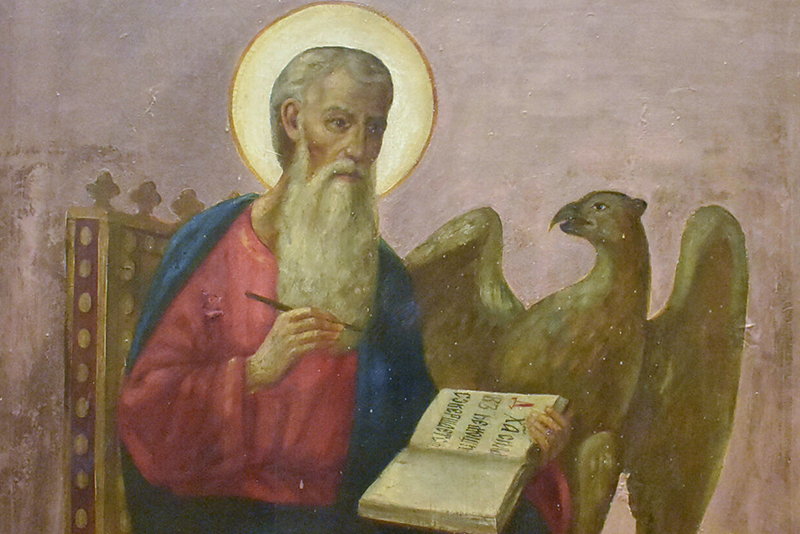
Readers of the scriptures should be aware that although the books of the bible are the joint work of man and God, none of them can be viewed in isolation from their cultural and historical context. For example, the lamentations of Jeremiah is a specimen of the genre of lamentations, common in the middle eastern literature of the time. Likewise, the book of revelation is representative of the genre of apocalyptic literature. As such, they employ a set of typical devices, tools, images and practices and sometimes even messages. In addition to the cultural and historical context, it is also possible to trace the connections between a literary work and the text of a specific biblical book.
One example of a literary work with multiple parallels to a biblical text is the Great Hymn of the Aten, a literary monument from Ancient Egypt. In this piece, we examine its commonalities with Verses 20 – 30 of Psalm 104. The cult of the Aten, God of the Son, was established in Ancient Egypt under Pharaoh Akhenaten, who reigned in 1397—1387/1372—1355 BC and eventually came to identify himself with the Aten. Ordinary Egyptians were allowed to pray only to Akhenaten and his wife, who alone could appeal to the Aten.

The hymn to the Aten shares with Psalm 104 several common themes, such as the glorification of the Creator of the World, praise of the beauty, wisdom and splendour of His creation. As a general observation, let us note that cultural influences are present in any text. The Hymn to the Aten has also been influenced by other literary monuments, such as the Hymn to Amon and Hymn to Osiris.
Let us focus on some specific fragments where the similarities are the most obvious.
Psalm 104 (1:19). Praise the LORD, my soul. LORD my God! you are very great; you are clothed with splendour and majesty. He made the moon to mark the seasons, and the sun knows when to go down.
Great Hymn to the Aten (2 – 3) You rise in perfection on the horizon of the sky, living Aten who started life! Whenever you are risen upon the eastern horizon, you fill every land with your perfection. Since you are Re, you reach as far as they do.
Psalm 104 (20 -21): You bring darkness, it becomes night and all the beasts of the forest prowl. The lions roar for their prey and seek their food from God.
Hymn to the Aten (3-4): Whenever you set on the western horizon, the land is in darkness in the manner of death. They sleep in a bedroom with heads under their covers, and one eye does not see another; If all their possessions which are under their heads were stolen, they would not know it. Every lion comes out of his cave and all the serpents bite, for darkness is a blanket. The land is silent now because he who made them is at rest on the horizon.
Psalm 104 (22 – 23): The sun rises, and they steal away; they return and lie down in their dens. Then people go out to their work, to their labour until evening.
Hymn to the Aten (4-5): But when the day breaks you are risen on the horizon, and you shine like the Aten in the daytime. When you dispel darkness and you give forth your rays, the two lands are in festival, alert and standing on their feet, now that you have raised them up. Their arms are lifted in praise of your rising. The entire land performs its work.

The similarities are obvious, yet it is still not fully certain how one text might have influenced the other. Despite the geographical closeness of the cultures, the differences between them are still stark. Accepting the most recent datings of the Exodus (1300 – 1500), the probability of the ancient Egyptian texts influencing the writings and the lore of the Israelites appears plausible. However, if the earlier datings of the Exodus were true, the pathways of the influence would appear less obvious. The use of similar allegories and images might be attributed to the presence of some other source known to both cultures. For example, references to biblical parables or images might occur in literary works even when their authors had no direct familiarity with the primary source.
Psalm 104 (24): How many are your works, LORD! In wisdom you made them all; the earth is full of your creatures.
Hymn to the Aten (37): How plentiful it is what you have made, although they are hidden from view, sole god!
Psalm 104 (25 -26): There is the sea, vast and spacious, teeming with creatures beyond number— living things both large and small. There the ships go to and fro, and Leviathan, which you formed to frolic there.
Hymn to the Aten (6): The barges sail upstream and downstream, too, for every way is open at your rising. The fishes in the river leap before your face when your rays are in the sea.
Psalm 104 (27): All creatures look to you to give them their food at the proper time.
Hymn to the Aten (6-7): You who have placed seed in woman and made sperm into man; who feeds the son in the womb of his mother; who quiets him with something to stop his crying; you are the nurse in the womb giving breath to nourish all that has been begotten when he comes down from the womb to breathe on the day he was born.
Psalm 104 (28 -30): When you give it to them, they gather it up; when you open your hand, they are satisfied with good things. When you hide your face, they are terrified; when you take away their breath, they die and return to the dust. When you send your Spirit, they are created, and you renew the face of the ground.
When you rise, they live; when you set, they die.
One should not perceive this review of the similarities as diminishing the Divine Revelation, because, in the teachings of the Orthodox Faith, a God-chosen prophet or writer of a holy text is not merely a tool in the hands of a deity. He expresses in writing the revelation given to him by God, and any such expression will be influenced by the personal perception of the writer that is shaped to a significant extent by his cultural context. Simultaneously, the similarity of forms and literary devices never diminishes the truth of the scripture’s dogmatic teachings.
In our example, while in the Hymn, Aten is himself the sun and nature, in the psalm of David, the Lord is the Creator of the sun and nature. And, as Creator, He has full power over them and a fundamentally different existence from the existence of His creations. Despite the beauty of the literary forms and the elegance of the style, the fundamental messages of the Hymn are deceptions. As Apostle Paul aptly remarked, “They exchanged the truth about God for a lie, and worshipped and served created things rather than the Creator —who is forever praised. Amen.” (Romans 1:25). The Holy Scripture will have none of these.





Well said John! I’m an Egyptian Egyptologist and have the same point of view, I’ve already wrote an analytical article in Arabic;
https://pulpit.alwatanvoice.com/articles/2018/06/14/466189.html
That’s great, thanks